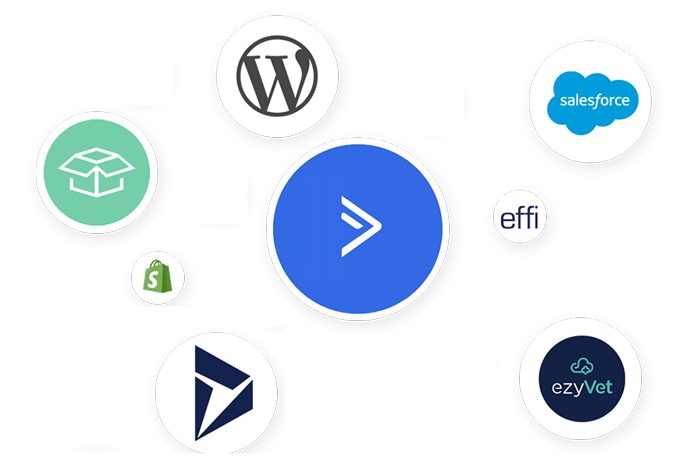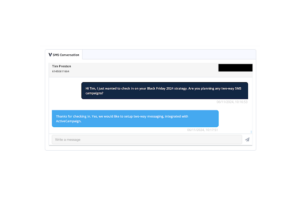Building a Custom Integration into ActiveCampaign can be a highly effective way to streamline your tech-stack. And best of all, if done properly, it can significantly enhance your overall business results! Here are a few of the benefits of creating a custom integration into ActiveCampaign:
- Automating Data Flow into ActiveCampaign: Sometimes, data is still manually imported into ActiveCampaign within an organisation. A custom integration can be the time-saving solution you’ve been waiting for.
- Enhancing Data Quality and Volume: Custom integrations can help increase the quality and volume of data available to your sales and marketing teams, leading to more effective customer communications and prospect nurturing.
- Technical Nuance: Integrating key systems into your business can help you build technical nuance that enables you to compete effectively in your marketplace. Having ActiveCampaign is a great start, but custom integrations can take your business to the next level.
At VYBRNT, we’ve developed numerous custom integrations between ActiveCampaign and various software systems over the last five years. Below are some of our insights and advice for businesses looking to build a custom ActiveCampaign integration.
To start, here are a few reasons why you might want to consider a custom-built integration instead of using an off-the-shelf product or a publicly available native integration:
- Missing Native Integrations: While ActiveCampaign offers a wide range of pre-built native integrations, many software systems lack an existing connection. In such cases, custom integration is necessary.
- Insufficient Native Integration: When the native integration does not meet your specific needs.
- Two-Way Integration: If you need a two-way integration between systems with custom logic.
- Enterprise Requirements: If you’re an enterprise and prefer an integration tailored to your organization’s requirements, including cybersecurity standards and hosting environments.
- Uncomfortable with Zapier: If you are not comfortable using Zapier or a similar syncing tool.
- Avoiding Continuous Monitoring: If you don’t want your organization to rely on Zaps, which require constant monitoring and management.
Custom-built integrations are particularly advisable for large organisations or those using industry-specific software without a publicly available native ActiveCampaign integration.
Consider the following key points when building a custom integration into ActiveCampaign:
- Upstream or Downstream Integration: Determine whether it’s an upstream integration (commonly this refers to data flowing out of ActiveCampaign) or a downstream integration (data flowing into ActiveCampaign from another business system).
- Two-Way Integration: Decide if a two-way integration is necessary, as it can be more complex and requires careful planning.
- Custom Objects, and your Data Structure: Make sure you’ve thought through how your ActiveCampaign account needs to be configured in order for the systems to match as closely as possible. You will want to carefully consider your ActiveCampaign system configuration, field mapping, and data-structure. Additionally, you will likely want to consider utilising Custom Objects in ActiveCampaign to match your bespoke data-layers as closely as possible as part of building a thorough integration.
- Integration Options: Explore available options such as APIs, webhooks, and file transfers to facilitate the integrations. More specifically;
- API integration
- Excel file programmatic import
- JSON file programmatic import
- etc
Common Mistakes in Custom Integration Projects:
- Over-Simplification: Avoid over-simplifying the project; treat integrations with proper planning and respect from the beginning.
- Incorrect Data Mapping: Ensure correct data mapping between systems, matching corresponding field types. Also, you will likely want to consider Custom Objects to ensure you can match your bespoke data needs to ActiveCampaign.
- Platform-Specific Functions: Let many functions be handled on the front end of ActiveCampaign rather than hardcoded within the integration, requiring a developer with platform-specific experience.
- Source Attribution: Implement source attribution by passing tags to ActiveCampaign for each lead synced from the integration.
- Hosting Consideration: Plan for hosting the custom-built code in a “Middleware” environment, considering monthly costs.
If you’d like to discuss a Custom Integration project for ActiveCampaign, please contact us directly. We would love to hear from you and provide assistance in conducting the project or guiding and consulting for its success.
Book a call with us on our contact page: https://vybrnt.com/contact/





 Facebook
Facebook Instagram
Instagram Linkedin
Linkedin